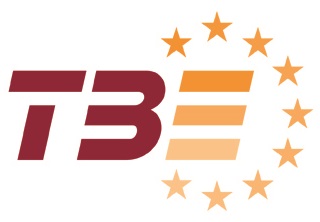Measuring sustainability in construction: Building coherent tools with Product Category Rules (PCRs)
INTRODUCTION
Today, it is no longer acceptable for a manufacturer to claim that its products are sustainable. Transparent assessment and validation processes are now the norm with the Environmental Product Declarations (EPDs) verified by qualified third party experts.
The use of EPDs is growing in the construction industry, both in the EU and internationally. This increase is being driven by both new legal requirements and voluntary schemes. Product Category Rules (PCRs) are the cornerstone on which we build our EPDs. PCRs provide guidance and rules for the collection of data, for the calculations and how this information should be presented.
Amongst the new legal requirements and voluntary schemes, CEN TC 350 has recently published a set of standards for the measurement of environmental impacts of construction products and whole buildings across the entire lifecycle. Some Member States and regions have developed their own EPDs schemes; others ask for a calculation of sustainability whilst EPDs cannot be drafted based on harmonized product standards. There are competing sources of data available and, last but not least, the EC is developing new environmental foot printing methodologies.
In theory, the level playing-field provided by PCRs enables comparability between different EPDs and provide reliable Life Cycle Assessment information for both manufacturers and purchasers. However, amongst the plethora of initiatives and requirements, there is now an urgent need to build a credible, transparent, and efficient infrastructure to support Life Cycle Assessment in the EU.
OBJECTIVES
In this half-day workshop, participants will explore activities already underway in the development of PCRs and EPDs and discuss the road ahead. Specifically, participants will be informed of the lasted developments that have taken place in certain Member States, in standardisation and at company level. Concerning EU policy, participants will discuss how EPDs may be used to drive the EU resource efficiency policy. More so, the foreseen Environmental Footprint of Products methodology will be presented and comments noted in order to respond to the on-going EC consultation on delivering more sustainable consumption and production. Finally, the workshop will close with a set of recommendations for continued PCR development.
WHO ATTENDED
This workshop was attended by EU officials from DG ENV, DG ENTR and the JRC, manufacturers, trade associations representatives, CEN officials, life cycle assessment practitioners, construction product distributers and architects.
presentations
Six presentations were made during the workshop, one by Mr Pavel Misiga, followed by Mr Eric Gravier, Mrs Anita Ory, Mr David Pennington, Mr Roland Hischier, Mr Johannes Kreissig and Mr Chris Hamans. Numerous questions were asked and a brief summary can be found here. As this workshop was the starting point of a necessary process, the participants made recommendations for the next steps and Tiles & Bricks Europe is please to have helped set the scene for the next rounds of debate and exchange.
Check out the pictures and the album.
Thank you again to the speakers for a very successful event.






